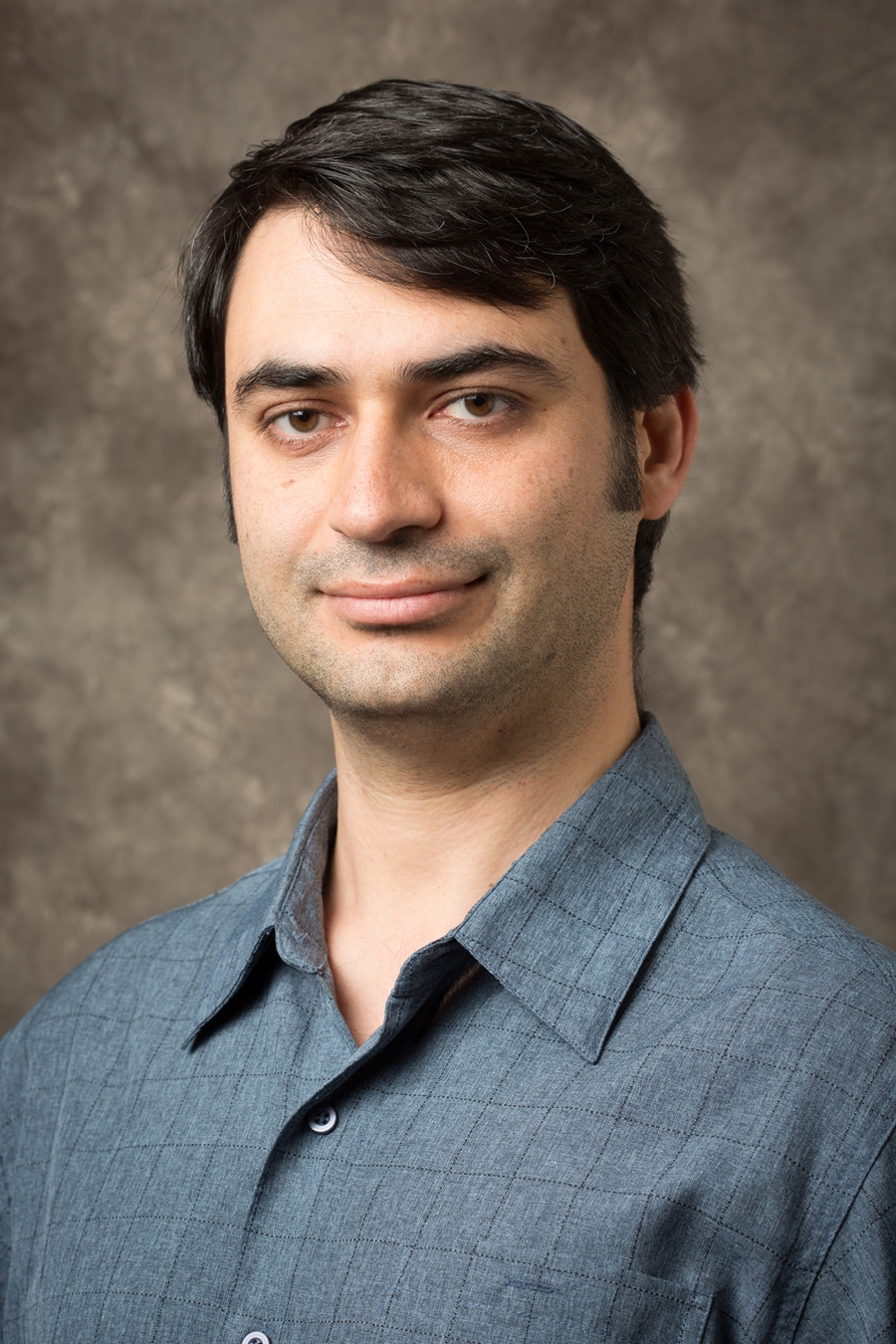FAYETTEVILLE, Ark. – Chemist Mahmoud Moradi has received a $650,000 National Science Foundation Faculty Early Career Development award to advance his work modeling the function of proteins at the molecular level, which will deepen our understanding of disease and improve drug design.
Moradi’s research lies at the intersection of biology, physics, chemistry, mathematics, statistics and computer science. An assistant professor in the Department of Chemistry and Biochemistry, he develops biomolecular simulations and computational theories that explain how proteins function at the molecular level. The theories improve geometric models to describe how proteins change their shape and how these changes affect a protein's behavior.
Proteins are considered the workhorse molecules of cells. They are responsible for nearly all tasks in cellular life, including product manufacture, waste cleanup and routine maintenance. Some proteins transport materials and information between the cell and its environment, a vital task for the survival and normal function of the cell. Any disorder in protein function can result in disease. Therefore, the study of protein function is necessary for understanding the molecular basis of disease.
“Recent advances in supercomputing technology has enabled us to simulate complex biomolecular systems that might contain millions of atoms,” Moradi said.
“By allowing us to visualize the behavior of the proteins and other biomolecules at the molecular level, these simulations are helpful not only in understanding their workings but also in designing therapeutics to manipulate their behavior when they don’t function right.”
Theoreticians have been trying to come up with shortcuts to accelerate the computer simulations of protein behavior without compromising reliability. These shortcuts, called enhanced sampling techniques, are based on Euclidean geometry, which is embedded in conventional statistical mechanics.
Moradi’s project improves enhanced sampling techniques by incorporating a more general and accurate geometry, known as Riemannian geometry. Riemannian geometry allows the intrinsic protein space to be curved, somewhat similar mathematically to Einstein's general relativity theory, where gravity curves, or warps, spacetime.
The Faculty Early Career Development Program, also called CAREER, is the NSF’s most prestigious award in support of early-career faculty who have the potential to serve as academic role models in research and education and to advance the mission of their department or organization. Research by early-career faculty build a firm foundation for a lifetime of leadership integrating education and research. Moradi’s award is part of the Chemical Theory, Models and Computational Methods program in the Division of Chemistry.
About the University of Arkansas: The University of Arkansas provides an internationally competitive education for undergraduate and graduate students in more than 200 academic programs. The university contributes new knowledge, economic development, basic and applied research, and creative activity while also providing service to academic and professional disciplines. The Carnegie Foundation classifies the University of Arkansas among fewer than 2.7 percent of universities in America that have the highest level of research activity. U.S. News & World Report ranks the University of Arkansas among its top American public research universities. Founded in 1871, the University of Arkansas comprises 10 colleges and schools and maintains a low student-to-faculty ratio that promotes personal attention and close mentoring.
Topics
Contacts
Mahmoud Moradi, assistant professor, chemistry and biochemistry
J. William Fulbright College of Arts and Sciences
479-575-6459,
Matt McGowan, science and research communications officer
University Relations
479-575-4246,
